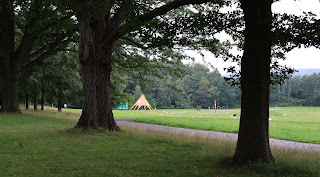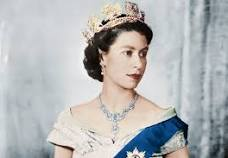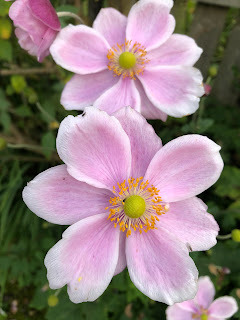Jen Black's Blog, page 7
December 1, 2023
Conflict can be simple
 Ever wondered about conflict in creative writing?
Ever wondered about conflict in creative writing?It's important. Without it, a book is boring.
There is conflict in action and everybody can see when two characters come to blows or the Indians attack the cowboys. There can also be conflict that is only implied or suggested, even hidden.
People rarely agree about everything, no matter how good a friendship is. Little things niggle and become an irritant, and can lead to big blow-ups which may seem to be about one thing but are often due to something completely unsuspected. Those conflicts make life really interesting! So often these spats show what people really are and what makes them tick - or explode.
My dog and I have conflict. She wants to dart from side to side at great speed, following every last smell but I want her to walk sedately by my side and not drag me into a hedge or a cowpat. We struggle. Eventually I win, and she loses interest in the smells. (Not really, but she stops dragging me to them!) Sometimes I can be patience itself with this behaviour but sometimes I am dangerously close to shrieking at her and since she's deaf, it doesn't help.
The shrieking can be because several small incidents have happened to me that particular day, and it is the cumulative effect that tips me too far over the edge. This can happen in fiction, too. It doesn't have to be one word, or one phrase, but it might be several comments from different characters spread over a day. Conflicts can be simple or they can be complex. Writing conflict is wonderful.
November 14, 2023
What is pacing?

What youmay well ask, is pacing?
It canrefer to the rhythm of the novel, the rate the reader reads, the speed at whichevents take place in the story. Usually, it refers to the latter.
Whatspeeds up the pace? Dialogue. Every good book begins with the protagonistwanting something.
S/he mightnot know what it is s/he wants on page one, but s/he had better have found outby page 30, and 20 would be even better. Everything that follows should lead tothe achievement of that goal. Other characters have their own particular goals,which often prove to be obstacles to the protagonist.
If thereare two conflicting goals for the same character, then the battle is within thatcharacter. Each goals is a plot arc. The main arc should open at the beginningof the story and close at the climax. Smaller arcs can open and close along theway and stay relevant to the particular character by showing their motivation,agency and desire.
Pacing,therefore, refers to the length of time between moments of conflict.
November 7, 2023
The Big Unanswered Question
 Novels begin with a big unanswered question, also known as BUG.
Novels begin with a big unanswered question, also known as BUG.Sometimes it is easy to think of one, but right now my mind is absolutely clear.
Not a single BUG in sight. So I'm taking this time as a holiday and enjoying it.
Doesn't stop me thinking about it though. Once you have the BUG, then the novels flows easily enough as the protagonist tries to answer the question or solve the puzzle. Conflicts occur as the author builds toward the climax or the answer to the BUG, and here it is as well to remember that "things happening" is not necessarily conflict.
I recently read a police procedural in which there were lots of things happening that were, in my view, simply page fillers. Meals described, quiet evenings at home, sorting one's music collection; stuff like that.
In Rebus stories, the music mentioned (and only mentioned) is always relevant to the story going down.
In the book I've just read, it was an author enjoying showing off his knowledge of music. I soon learned to skip the music bits. The moral of the story is keep the story moving forward. Always.
October 28, 2023
Curiosity will keep me watching
I've been watching The Crown on disc.
 So far only up to the end of Series 3. For me, it is like watching a potted history of my life, but this time from the inside looking out rather than outside looking in. There are one or two bland spots but most of it is interesting and certainly looking at the palaces is entertaining. I am surprised the rooms are so very dark, when they have such huge windows. They are often mist-filled, though given the way everyone smokes, that is not a surprise. I can remember walking into rooms where a blue-yellow fug filled the air.
So far only up to the end of Series 3. For me, it is like watching a potted history of my life, but this time from the inside looking out rather than outside looking in. There are one or two bland spots but most of it is interesting and certainly looking at the palaces is entertaining. I am surprised the rooms are so very dark, when they have such huge windows. They are often mist-filled, though given the way everyone smokes, that is not a surprise. I can remember walking into rooms where a blue-yellow fug filled the air.Another surprise is the way everyone, bar Margaret, sits bolt upright. No one seems to relax into an easy chair. My memory of the queen will consist of Claire Foy and Olivia Coleman staring into camera with a fixed blankness no matter what is said to them, and I wish they had relaxed a little more. They do say the Queen had a wonderful sense of humour, but I've seen little of it in this production. Of course, as my husband keeps reminding me "It isn't true, you know. It's all made up stuff."
Well, yes, I know that, but there is enough "truth" to keep me watching. Even as a child I had some instinctive aversion to the Queen Mother and watching her in this production has done nothing to change my view. Charles has my sympathy and I can't help feeling that Charles Dance would have made a better Prince Philip than Tobias Menzies, brilliant actor though he is. Dance, I suppose, was too old to play him.
Listening carefully, I hope to identify when they began to lose the upper crustiness of their accents. Comparing the way the queen spoke when in her twenties to how she spoke when in her eighties, it is obvious she lost the sharpness. Was it deliberate, I wonder?
Is it good drama? I suppose so. The production is less tacky than I expected. Will I keep watching? Certainly. Curiosity will ensure that, if nothing else.
October 24, 2023
It's frowned upon now

Peopletalk of the rhythm of the novel. It may be consistent, going in and out regularly like the tide but occasionally a strong wind comes along and the waves become a menace? Others worry about the rate a reader reads.Sometimes it’s all about the speed at which events occur in the story thatexcites people. Every readers’ experience of a novel is unique. There werepeople who found the Da Vinci Code exhausting because it never let up the pace andthat was precisely what other people loved about it.
Somereaders love description and want more of it. Others find it boring and skipover to get to the next bit of action. I suspect the latter group are the ones who talk of pacing asbeing paramount to the success or failure of a novel.
Pacingcertainly keeps the story moving forward. (Or it should.) Nowadays there is atendency to shorter sentences and shorter words and I imagine the brainstutters a bit when trying to switch gear and read any of the old classics. Notthat it can’t be done, but the change is real. A fast pace makes the readerfeel more emotion, more caught up in the action. Back story and “telling” arenow frowned upon in the first few pages of a book and in some cases, the wholestory!
October 12, 2023
A Breath of Fresh Air
We spent a happyweek in the fresh and bracing air of the Moray coast, very close to Gamrie Bay.Far out in the distance we spotted the spidery outline of an oil rig, and Nalahad a wonderful time loping about the beach. Sheltered by such high cliffs, thebeach was warm and pleasant and we ambled along wishing we had her energy.
It amazes me thatsome winter storm has not battered some of the houses into bits. They stand soclose to the shore and the waves come right up to the sea wall in summer. Whatmust they be like in winter?

 The ruin of St John's church stand high on the cliff and there is a path up from the beach if you've the legs to make it!
The ruin of St John's church stand high on the cliff and there is a path up from the beach if you've the legs to make it!Built in 1513, so they say. If the people of Gardenstown and Crovie used it, then they must have been fit. There is a lane down from the road, but that seemed a longer route. I'm ashamed to say we did neither! The village of Pennan is just beyond Crovie and they filmed parts of Local Hero there, or in Arisaig on the west coast.

September 22, 2023
The influence of Dunnett

The years prior to 1960 provided pretty solid reading in the historical fiction department of public libraries: Elizabeth Byrd’s Immortal Queen in 1956, followed by Serge et Anne Golon in 1957 with Angelique: The Marquise of the Angels. I had taken Game of Kings (1961) from the library for my mother to read, and when she handed it back to me with the words, “You will enjoy this,” she had no idea what she was doing.
I read it with growing delight because suddenly dialogue was not sprinkled with forsooth and pray, my lord, and pages were not filled with exposition and political backstory, nor was there any head hopping which was common back then. Instead, intelligent conversation that often had a sharp and witty edge to it. She had me hook, line and sinker by the time Buccleugh “stopped listening and went for a crowbar” in Chapter 1.
I looked for other books like it and found very few, if any. Like Dorothy Dunnett, I dallied with the idea of filling the gap by writing a book myself but hung back, unsure that I could do it.
Work and bus travel took up a lot of time, and relationships with the opposite sex were important, but the idea sat in the back of my mind all through the publication of the six Lymond novels. I studied her writing, and loved how she was precise in her use of grammar.
There was never any doubt over who was speaking or thinking, as there often is today in popular novels. I also liked the way she broke up long sentences – introducing three words, adding the dialogue tag and then completing the sentence. She didn’t always use dialogue tags, but action tags did the job superbly.
Her settings were so real that one holiday in France my husband and I trudged around Blois on a very hot day tracking the Dame de Doubtance to her lair on the Rue de Papegaults. We did something similar with the drum tower of Amboise and the traboules of Lyon, and the cisterns of Istanbul.
The characters Dunnett creates are unforgettable and almost real. Like everyone else I checked the history of the “real” characters and MacBeth from King Hereafter became the starting point for my first book in which a certain Daveth mac Finlay allies with Thorfinn to secure the throne of Alba.
Margaret Douglas became my next focus and the Scottish Queen Trilogy has dear Meg as a major player in her struggle to stay safe and achieve a secure marriage. Dunnett has her as an evil influence on Lymond, but once I read her life story, I understood Meg walked a tightrope her entire life. It began with her mother, who chose to stay with her son, the future King of Scotland, and handed Meg over to her father the Earl of Angus, whose lands had been confiscated by the Crown.
Dragged up by Douglas relatives all over the borders until her aunt Mary (Henry VIII’s sister) invited her to the English court, Meg had no one to rely on when Aunt Mary died in 1533. Desperate to marry, she was thrown in the tower when Henry discovered her affairs. Without heirs himself, he did not want Meg to marry and have children who could very well claim the crown. She was, after all, his niece and the granddaughter of Henry VII. He was a very real influence on her life choices.
September 13, 2023
Endings are difficult
The biggest fault with story endings is when they are predictable.

Howoften have you heard someone say, “It was good but I guessed the ending by page5?” Good stories have the reader guessing right up to the end.
Not allplots come together as well as Maass would have us believe: he says inner (emotional)and outer climaxes (plot related)must come together at the same time. Thewriter may forget the emotional slant in the rush to the end, and that is amistake. It can also be overdone. There are one or two Jack Reacher sceneswhere I think, oh for Heaven’s sake, get on with it!
Maassrecommends making failure look likely, too. Everybody, except maybe JackReacher, has doubts.
Snyderuses the phrase A whiff of death, or All is Lost, and says this must occur inevery thriller before the final moment.
Fiction genres come with predetermined expectations. Romances, for example, usually have a nice, happy, upbeat ending with Hero and Heroine in a happy-ever-after-clinch. Mysteries and thrillers depend on plot twists that keep readers turning pages to find out who done it, or why. “Expect the unexpected” is the motto here. Open or unresolved endings are not good in this genre. The reader wants to know if the murderer goes to prison, escapes, or dies trying? Was the truth uncovered?September 5, 2023
Mixed genres
 Me in days of yore Nearly finished the wip.
Me in days of yore Nearly finished the wip.Except that the word count is not what I want it to be.
The main protagonists didn't get it together in the way I wanted when I started out. In fact they didn't get it together at all. And I haven't written the final chapter yet. Why haven't I? Because I can't decide what the ending is.
This isn't a historical romance. In that genre, it is usually pretty easy to decide when the end is actually the end. But my current experiment is perhaps a cozy mystery, or perhaps a gentle police procedural (if such a thing is possible) or maybe just a murder mystery. I guess the end is when the murderer confesses all and the reader knows "whodunnit."
Alongside all that, there are the usual editing moans of glitches and typos, double spaces instead of single and three periods instead of one, never mind the comma and the full stops splattering the the whole thing.
All that plus the usual misspellings, plot holes and characters misnamed. It's a this point where I long to move onto something else, something new and different because to be honest, I'm bored with reading and re-reading searching for things to correct. I'm bored with making the hero more romantic and wondering if I've got my genres mixed up. Is it possible to mix genres? Mash-up romance and thriller? Doubt it.
The only answer is to get on and finish the thing. Then I can be free of it ....
August 24, 2023
To tag or not to tag?
 What do other writers think of Dorothy Dunnett?
What do other writers think of Dorothy Dunnett?You may or may not have heard the name, but she wrote several historical series that garnered many, many fans.
Check out this link: The Writers’ Writer – Dorothy Dunnett Centenary (dunnettcentral.org) and find out. You will find my comments there along with a dozen or so others.
They make interesting reading. Currently I am going through my latest wip and trying to tie up all the loose ends. The easiest thing in the world is to add "said "after every line of dialogue, but oh! it does make for boring reading.
So now I have struck out many of those dreaded words and let the dialogue stand alone, or I have add an action tag to make life interesting. Often I tie two separate sentences together to make one graceful, more interesting sentence. It seems when I'm writing the first draft I go for the simplest language and often employ phrases like "and then she...."
Not good. Second time is when the editing brain goes into action and re-writes all those awkward constructions.
Jen Black's Blog
- Jen Black's profile
- 6 followers



